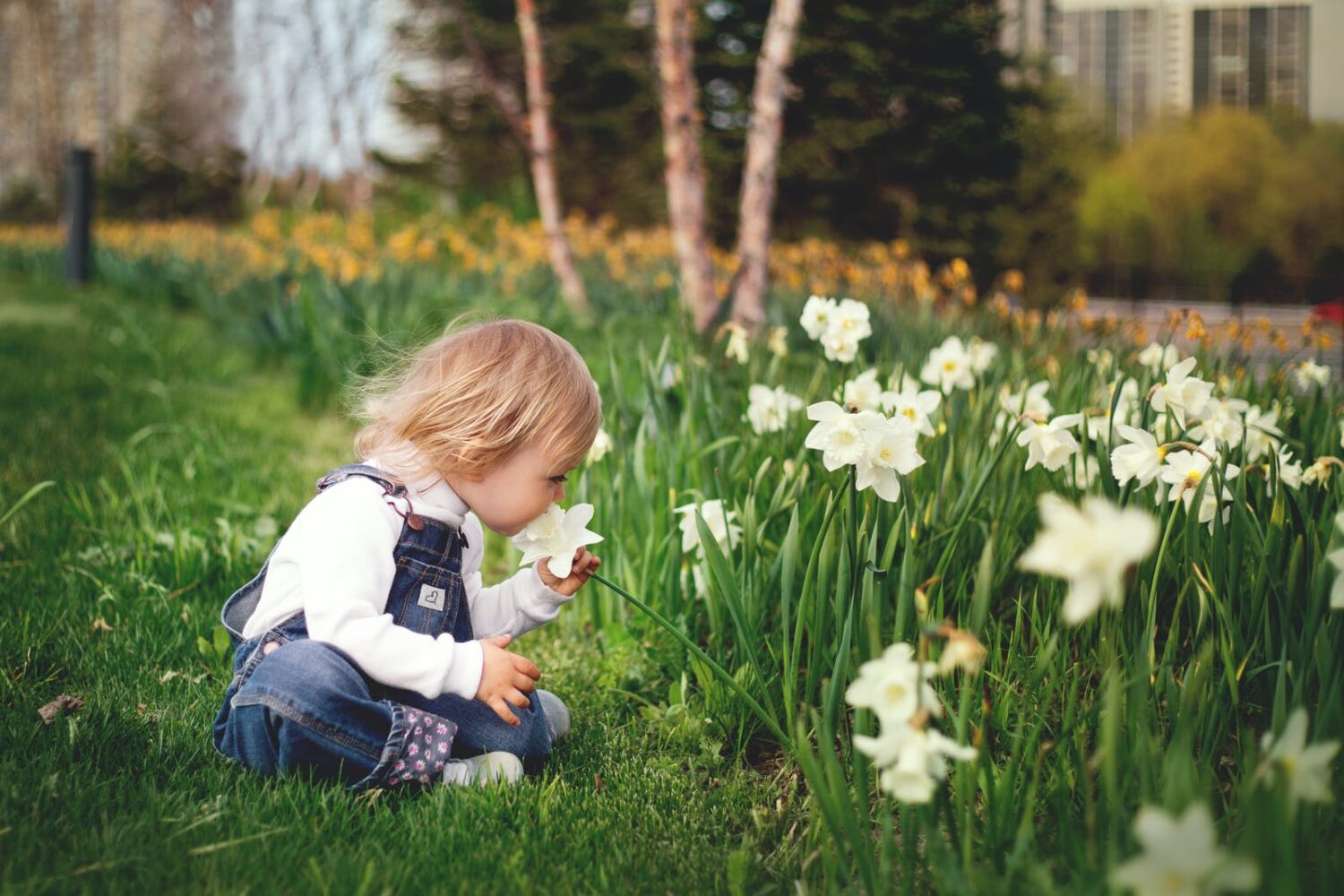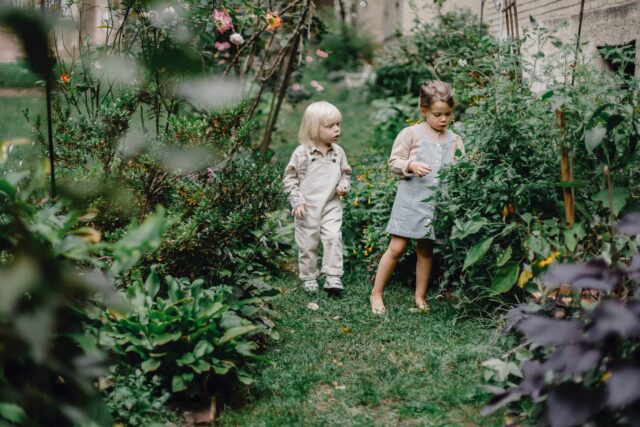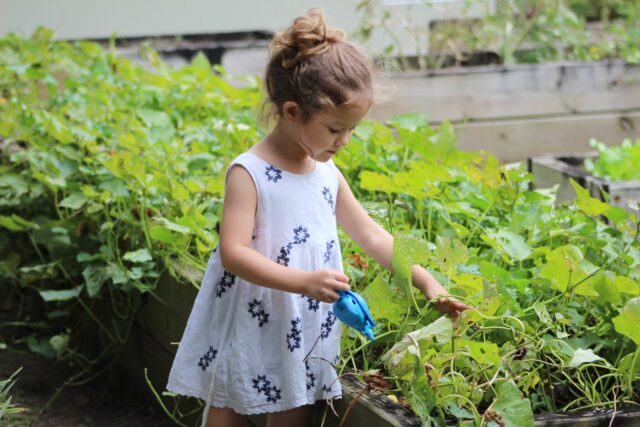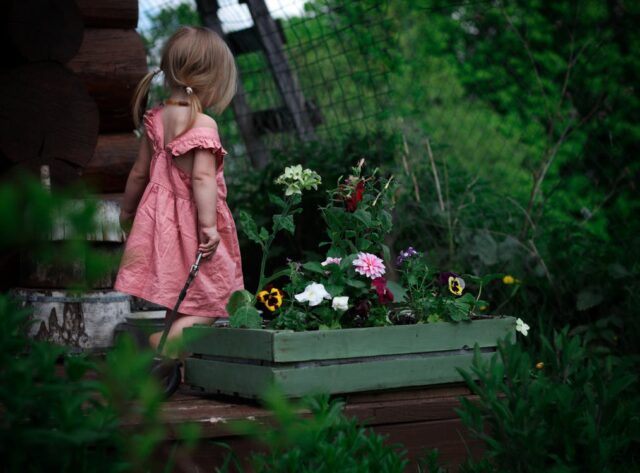
It can be hard growing up with a significant medical condition that affects one of your senses. It’s especially difficult in childhood years for those who do not live in areas that can provide nice examples of other stimuli as readily as the one they are missing. That’s where sensory gardens can come in. These places act as great sources of enjoyable and soothing environments for children with these medical conditions.
What is a sensory garden?

All interactions our body has with the outside world are achieved through senses. Each and every one of these is important in order to form an accurate idea about the area we are in. Touch, taste, smell, sight, and hearing are all individually important for grasping the surrounding area and fully indulging in the current experience. With these senses, our brain forms an ideal picture along with the feelings attached to it.
A sensory garden is a garden area that is focused on engaging all of their senses. The variety in senses and types of senses experienced is the key benefit of such an area.
There will be plentiful smells, sighs, and other stimuli to enjoy within sensory gardens such as this. A sensory garden aims to engage them both individually while also providing an ability to engage them simultaneously. These gardens will include pleasant-smelling planets and a variety of colorful flowers. The texture of the plants and areas inside one such garden is as important as the appearance while audio will usually be filled in by the ambiance of flowing water and chirping or other forms of sounds like wind chimes.
However, it’s not rare for sensory gardens to fully focus on a single sense. Although these are often referred to based on their associated sense. For example, those gardens that focus on the sense of smell are referred to as scented gardens.
Regardless of their type, these gardens are meant to calm down and soothe people who find themselves in them. It’s expected that such an area will end up being very calming especially with the natural association of greenery with calmer behavior.
While it may take a lot of care and attention, it’s possible to create your own sensory garden. These gardens can further be modified to fit your wishes and needs but proper education on the matter is paramount. A lot of important details can be found on www.diygardening.co.uk where guides and ideas for sensory gardens are abundant.
Benefits of sensory gardens

The benefits of a sensory garden are many. However, they are most often felt by those who have certain medical conditions. For those who have problems with one of their senses, sensory gardens provide a rather calming experience.
As we’ve noted, sensory gardens aim to include individual senses as well as a combination of them within a single green area. This means that every sense gets a chance to be properly experienced. Kids who have issues with one of the senses will feel much better in an environment that aims to engage them with the other senses. The specialized nature of these gardens makes it so nobody is excluded. While your local park may have greenery, it rarely fully engages more than one or two senses.
Sensory gardens will provide a way to engage every sense to a decently high degree. Blind kids can indulge in the calming and enjoyable noises of the garden while touching plants with a pleasing texture. Smells within sensory gardens are nice and enjoyable while not being overbearing for the nose. A lot of sensory gardens also have edible plants that can be sampled for that extra engagement of the senses, aiming for our sense of taste.
While a blind kid will have a hard time seeing the area they are in, depending on the condition this could be impossible, they still get fully engaged and can relax inside of one such garden.
Other medical conditions that hamper other senses will not be left behind either, obviously. Aside from the aforementioned engagement of the senses there are also visual stimuli that come in many different forms. A lot of alternate shapes and sizes of plants that contain colorful flowers or even entire trunks adorned with interesting colors are going to incite the feeling of comfort in no time.
It’s a very nice way to get a very enjoyable time for a kid with any medical condition, helping them indulge the world around them. It’s good for mental health overall but it especially benefits those who may not be able to get recognizable stimuli in their daily life.
Sensory gardens are great for grown-ups too

It goes without saying that the supremely decorated and engaging gardens aren’t only for kids. They work great for adults too. The joy of nature is something that ends up being harder and harder to experience in big towns that rarely have many parks to indulge in.
Even then, it’s far cry from the more intricate design of sensory gardens which are specialized in providing good stimuli.
It’s worth mentioning that said gardens can greatly benefit people with anxiety and older people with Alzheimer’s. There are multiple different therapies associated with these sensory gardens that have proven functional. The soothing experience will be pleasant, at the very least.
Conclusion
Sensory gardens are very unique and useful types of green surfaces that we can rely on for a lot of things. Their primary use is to simply transmit the enjoyable feeling of different stimuli and engage all the senses. However, with the myriad helpful effects it can have, it may be of most use to those with certain medical conditions.
No matter what type of sense it is, the sensory garden will be full of it. That means even those who have medical conditions that may hamper one of their senses still get to fully indulge in the joy of gardens.
Creating a garden like this in your own yard may be a more difficult task than a standard garden but it pays off. Even if all of your senses work fine, the garden provides a great source of respite and a soothing ambiance.









